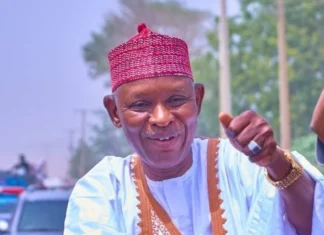By Hawa Umoru
Rape is a type of sexual assault that involves the intentional penetration of the vagina, anus or mouth of another person. Any gender can be a victim of rape but women suffer the most. According to the National Sexual Violence Resource Centre (NSVRC), 91% of the victims of rape and sexual assault are female, while 9% are male.
There have been so many rape stories that have come and gone. While some involve the rapist, others just come out to express themselves, believing it will soothe their pain when they say it out.
In this year 2020 alone, over four (4) rape cases have involved the murder of the victims. Since the case of Uwa came to spotlight, along with the hashtags going round, one will think the rate at which new cases come in would reduce but the reverse has been the case.
As more cases keep crawling out, with more ugly scenes, not to talk of the ones reoccurring, and the victims not speaking out, I am forced to ask, “Do we have a rape culture or a culture of silence regarding sexual assault in Nigeria?
In my perspective, it is obvious that both the rape and silence culture coexist. This is because, if you handpick 10 girls that lived most of their lives here in Nigeria, either in the rural or urban area, from the poor and the rich, at least 8 of them will affirm that they have been raped or had a near-rape experience and this happens not with strangers alone, but with close relatives. (This is a personal observation as most cases are not reported).
Owing to the fact that the layman’s definition of Culture is the behaviour or habits that constitute or forms a person’s way of life and as it is, presently, rape has become the behaviour that forms the way of life of most Nigerians.
Talking about the culture of silence, the society does not help matters at all, as it tries, by all means, to make the victim stay silent. They are not encouraged to speak out, as most times, there will be no justice for the victim.
This silence culture is facilitated by victim blaming and the stigma associated with rape continues to discourage women from speaking out. Even at the time, the victim gathers the courage to speak out, damning the side talks and accusing the rapist, the society finds every means to shut her up.
Consider the Busola Dakolo and Biodun Fatoyinbo’s case. According to her, she was raped in her teenage years and it took her so many years before she could face her rapist and tell her story to the world. Yet, some people in the society turned the story around and accused her of lying and blackmailing, blaming her for not speaking up at the time of the incident.
The court itself ruled out her case and said it was ‘statute barred’ because it happened decades ago, without appreciating the magnitude of the case and went further to say it was a waste of time and abuse of judicial process as she was aimed at getting Fatoyinbo punished instead of getting justice and even fined her for it.
The culture of silence as regards sexual assault is one thing we really have to look into because most rape survivors tell their parents and confidants about their experience but were doubted and some even got punished for saying it out because of the people involved, who were their fathers, brothers, uncles, religious leaders and others.
Another aspect I think can help curb this Rape culture is the Government. Personally, I think if the Government takes this issue of rape really serious, and immediate and severe punishment is meted on the culprit when found guilty.
I strongly think the rate at which the cases of rape are reported will be reduced but instead, the issue is being dealt with as a child’s play without taking into consideration, the trauma that the victim goes through all their lives. Just like a report carried out by BBC on the 4th of June, 2020, one Ms Wanda Ebe said “The penalty for rape in Nigeria is up to 14 years in prison, but I have seen a judge sentence, someone, to just four years, with two years suspended, because he was young and had a life in front of him. What about the victim whose life he adversely affected?”
We really have a lot to do and work on ourselves as a society to stop this Rape culture – Sexual assault completely, and encourage the victims to speak up whenever they deem fit.
We have ten truckloads of problems to tackle as a Nation and it is unfair, rape is one of them.










